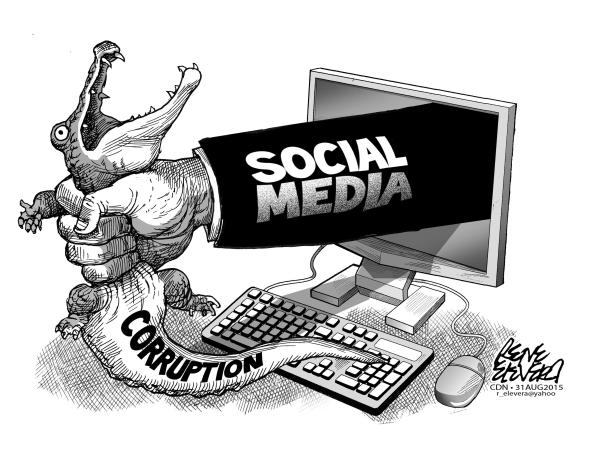
Maybe the leadership of the Bureau of Customs should have attended the anti-corruption meetings held during the Asia-Pacific Economic Cooperation (APEC) event here in Cebu prior to deciding on their policy for random inspection of balikbayan boxes.
Then again, maybe they had attended some sort of anti-corruption workshop held as part of the APEC series of meetings in Manila and decided on this random inspection policy afterwards.
Anyway, the anti-corruption meet held in Cebu City was spearheaded by Deputy Ombudsman Melchor Arthur Carandang, who pointed to the obvious need of the private sector and the community in rooting out corruption in all levels of political, economic and social activities.
Carandang, who chairs the Anti-Corruption and Transparency Network of Anti-Corruption Authorities and Law Enforcement Agencies (ACT-NET), called on the private and business sector, academe, religious groups and development planners in helping stamp out corruption amid increasing competition in the shrinking global economy.
We mention the Bureau of Customs because it is perceived unsurprisingly as the most corrupt agency in the government based on the Social Weather Station (SWS) survey.
If it’s not the top, it’s in the top three to five agencies in the national government which reek of the smell, sounds and sights of corruption. For nothing goes in and out of the country without their knowledge or say-so.
The Aquino administration had made it their mission statement to reduce corruption in government, and unfortunately for elected public officials who are used to getting their way, that means having to course aid through accredited agencies and distribute it directly to beneficiaries without their assistance.
There are ways to curb corruption which also remains prevalent in the private sector especially during biddings of projects. More often than not, corruption stems from their collusion with local officials and their subalterns, who are all too eager to get their slice of the money pie, welfare of their constituents be damned.
Thankfully we are not without tools to combat corruption, and this is where social media and a vigilant citizenry come in. In the case of the Bureau of Customs, it’s in the countless photos and videos that were made discreetly without their notice that have exposed the ugly truth and invited widespread condemnation that forced the President to action in an election year.
There are many ways to help government expose and curtail corruption, but this must be reciprocated with swift and decisive action, not hemming and hawing that could delay resolution and buy enough time for those who committed corruption to post bail or totally escape prosecution from the law.